
According to Equaldex data, while there are laws to help protect LGBTQIA+ citizens, the general populace of Romania, by over 50%, doesn’t want a member of the community as a neighbor. Furthermore, roughly 75% of Romanians can’t imagine any justification for “being a homosexual” (not that it needs one), and 61% believe LGBTQIA+ parents cannot be as good or loving as heterosexuals. Set against this puritanical backdrop is director Eugen Jebeleanu and writer Ioana Moraru’s Poppy Field.
Based on a true story, the drama is about closeted police officer Cristi (Conrad Mericoffer). He’s in a long-term relationship with Hadi (Radouan Leflahi) but never takes the flight attendant out on the town for fear of being spotted. Cristi’s sister, Catalina (Cendana Trifan), chastises her brother for this, but he is not swayed.
At work, Cristi acts “macho” and like a “real man,” even though his fellow officers know his secret. Mind you, he knows they know, but everyone tap dances around the issue to keep up civility. But Cristi’s two worlds crash into each other when some stick in the mud prudish people barge into a theater to protest a screening of The Kids Are All Right (yes, that piece of drivel of all things). While attempting to get to the bottom of everything and inexplicably asking the cinema-goers for their IDS (not the disorderly protestors), a person there recognizes him. Now, Cristi has to reconcile the possibility of being publicly outed with his duty as a cop.
Poppy Field has some confusing elements that pop up here and there. A little before the 20-minute mark, Catalina accuses Cristi of always needing to be the boss or some such. I rewound and re-watched the minutes just before and immediately after three times. Within context, it makes no sense. Sister drops by, meets Hadi for the first time, the idea of a drive around town is shot down, and then Catalina says goodbye. There’s a silent beat; then she speaks that line. Maybe it’s a translation error, but Cristi’s bossiness has no bearing on the current topic of conversation — whether or not Catalina is leaving after her brief visit.
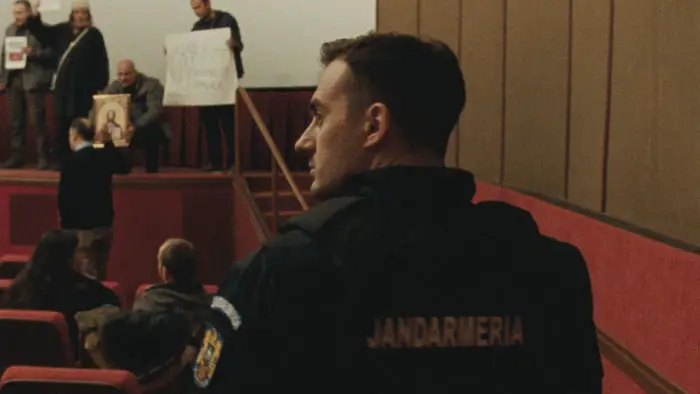
“…Cristi has to reconcile the possibility of being publicly outed with his duty as a cop.”
Also, at the movie theater during the protestor, who is the person who recognizes Cristi? And why does he think it’s a good idea to essentially threaten him remains vague? Is he an ex-boyfriend? Simply a one-night stand? While these ultimately don’t change the story’s trajectory, the lack of proper context makes the middle act drag, as it gets very repetitive. Cristi talks to this or that person at the theater, tries to get information, and overhears obscenities and derogatory terms being bandied about by the stupid, hateful conservative crowd. The point is made well before this draggy section ends, and the next plot beat reveals itself.
With all that being said, Poppy Field works far more often than not. Jebeleanu’s direction is stronger than the script. The filmmaker maintains an uneasy tension throughout, even when some moments need to be tighter. Long takes focus mainly on Cristi, quietly observing his internal struggle, sells the themes and lead’s plight in all the right ways.
To that end, Mericoffer is brilliant as Cristi. His overcorrection to hide his sexuality comes across as a true struggle of someone trying to find himself. The actor subtly shows the pressures from both outside and inside forces that are tearing him apart. It’s a tricky performance, as not showing enough emotion makes the character standoffish while revealing too much would destroy the inner turmoil at the heart of the narrative.
Even at 81-minutes long, Poppy Field drags a bit in the middle. But, the story is important, the lead actor is stunning, and the direction is excellent. Overall, this is a revealing and riveting look at how countries are dealing with the LGBTQIA+ in the worst possible ways.
For more information on Poppy Field, check out its official site.
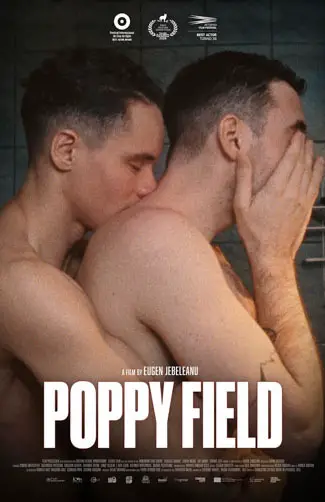
"…a revealing and riveting look at how countries are dealing with the LGBTQIA+ in the worst possible ways."
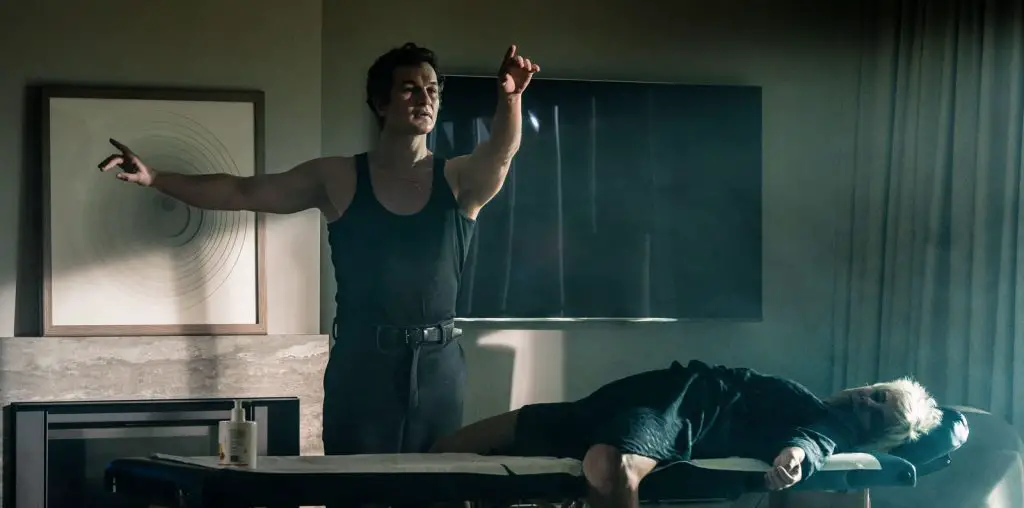
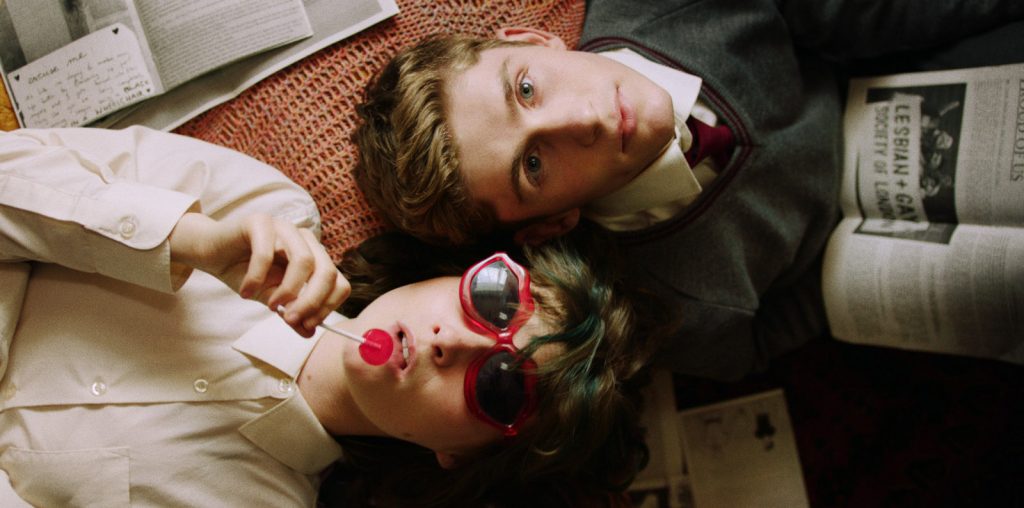
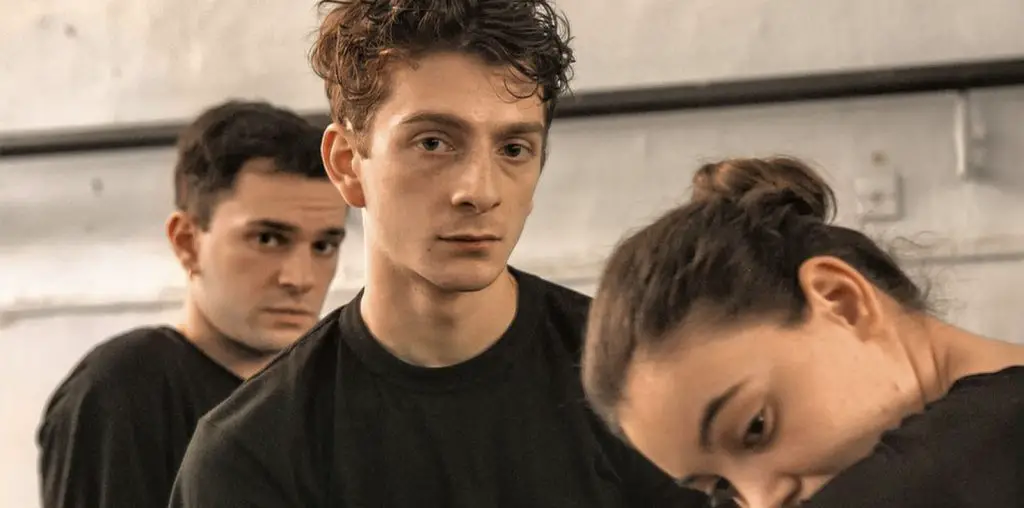
[…] “Even at 81-minutes long, Poppy Field drags a bit in the middle. But, the story is important, the lead actor is stunning, and the direction is excellent. Overall, this is a revealing and riveting look at how countries are dealing with the LGBTQIA+ in the worst possible ways.” Read more… […]